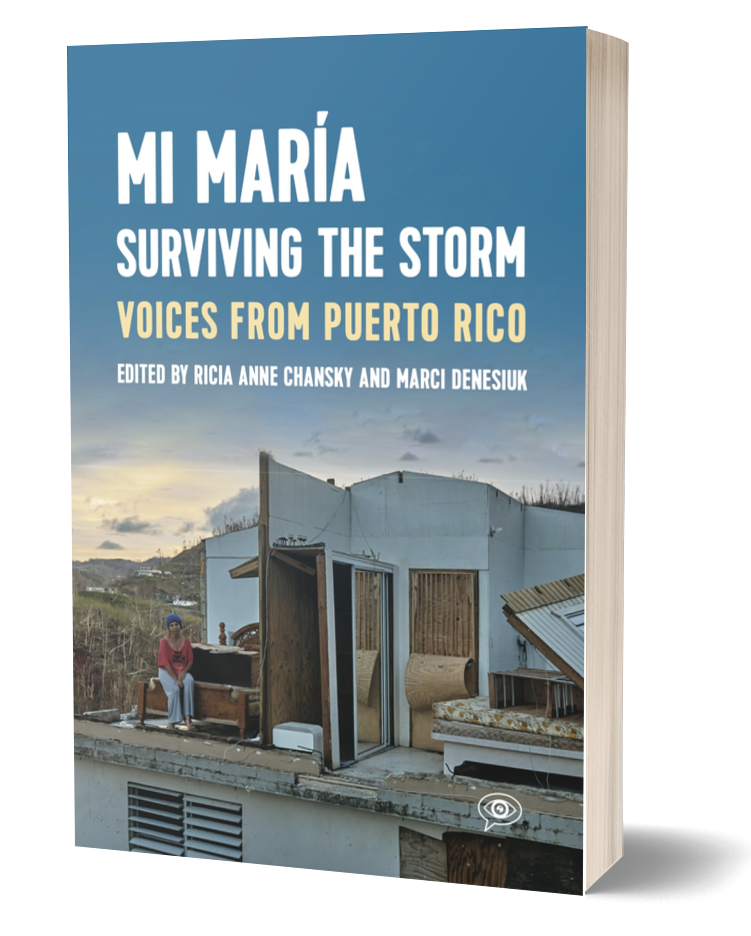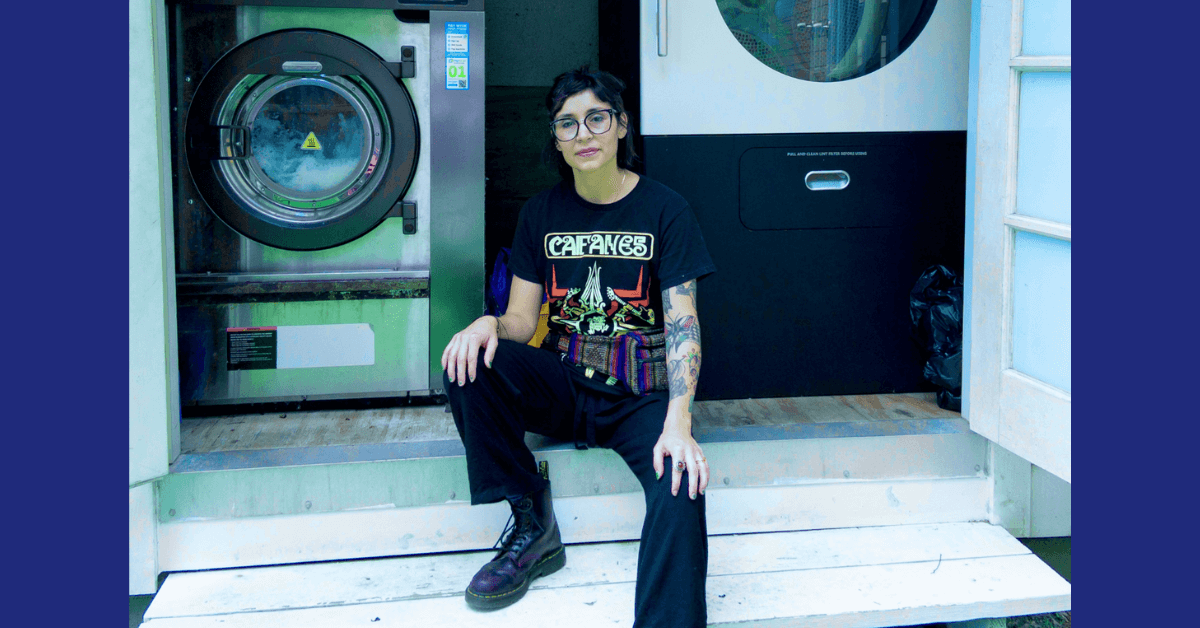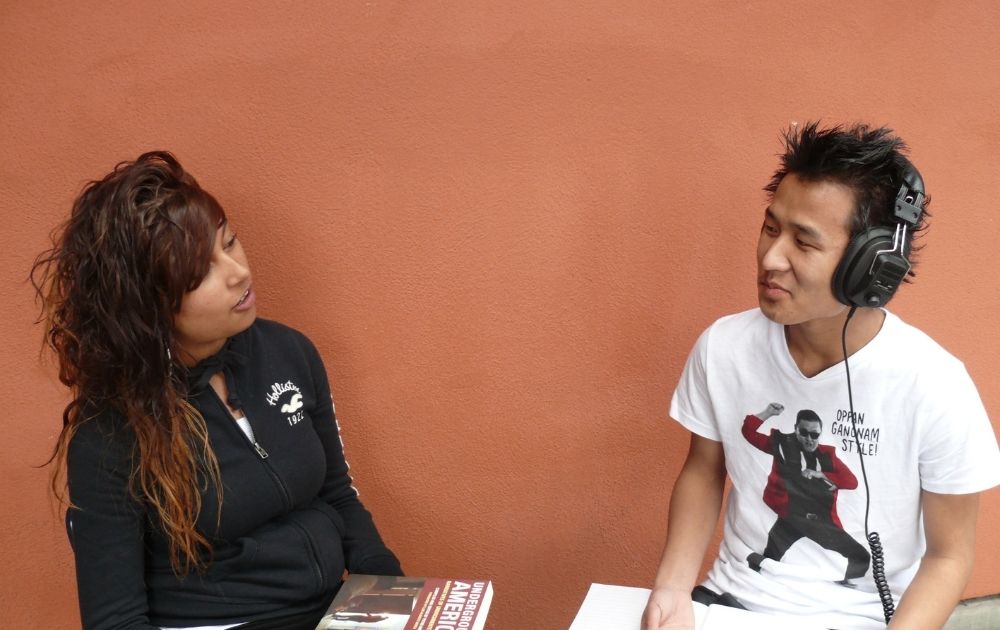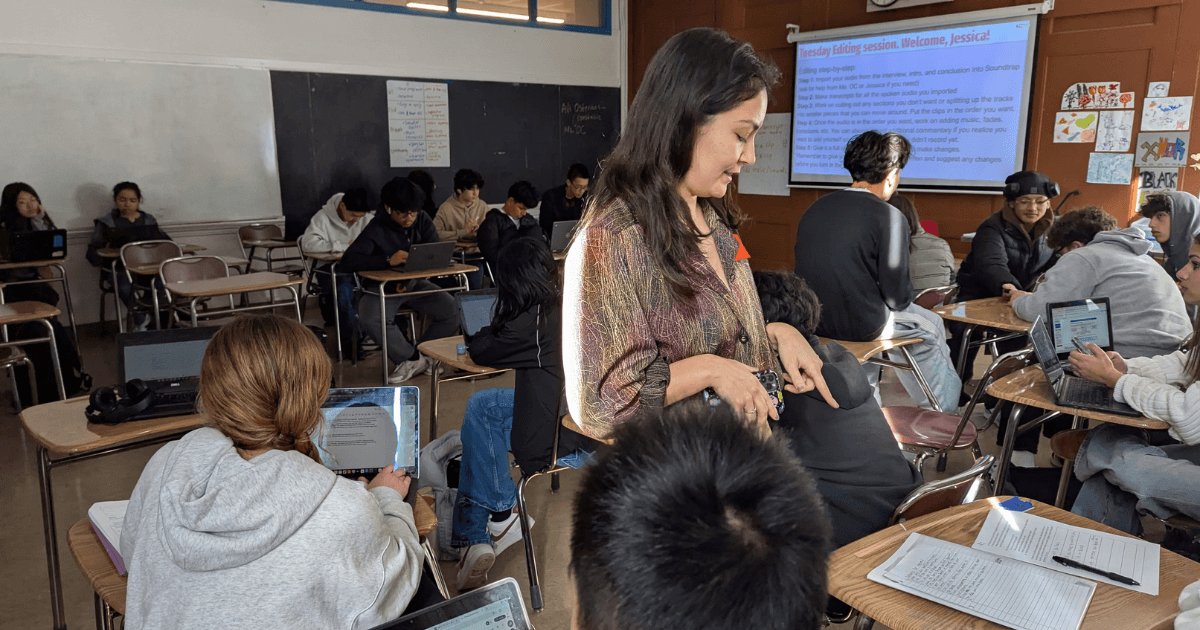
While news of climate change has been top of mind for years, so rarely do we get to hear directly from the people most impacted—those on the frontlines of climate disaster—about their experiences.
Last year, Voice of Witness released the oral history book Mi María: Surviving the Storm, which shares Puerto Ricans’ firsthand narratives of Hurricane María and its unjust aftermath in which governmental relief was slow to come and, in many cases, never arrived. Lack of government support left thousands without housing, electricity, clean water, and food.
Mi María brings together 17 stories that explore what it means to be a US citizen in a colonial context, how communities come together with mutual aid in the wake of disaster, and how inequities are compounded for those already marginalized.
September 20th marks 5 years since the hurricane hit, and Puerto Rico is still recovering. Currently, another storm, Hurricane Fiona, is making landfall and devastating communities once again.
In the resource section at the back, Mi María includes a list of 10 actions anyone can take to support immediate needs in Puerto Rico and advance long-term movements for justice. An adapted version of the list is featured below.
1. Fight for climate justice.
Hurricane María is one of several cataclysmic weather events of the past five years that are part of our current climate emergency. You can work to address climate change by participating in a climate strike, voting for candidates who will protect the environment, and participating in community-level projects that help protect waterways, combat industrial pollution, employ alternative energy, and more.
2. Hold FEMA accountable.
In 2020, watchdog reports were published decrying the FEMA response to Hurricane María, stating that—among other things—it took an average of more than two months for food and water to reach Puerto Rico and that FEMA lost track of close to 40 percent of the relief goods. As catastrophic climatological events become more commonplace, FEMA must change its operating procedures to accommodate all areas of the US, rather than neglecting the people of Puerto Rico, other US territories, and marginalized communities within the mainland. FEMA is overseen by the US Department of Homeland Security (DHS), and you can contact the online DHS Idea Community to share your thoughts on improving disaster readiness and providing unbiased relief efforts for all.
3. Advocate for self-determination for Puerto Rico.
Even though Puerto Ricans have been US citizens for over a hundred years, it is a second-class citizenship, and the people of Puerto Rico exist in a colonial state in which they have neither autonomy over relevant financial and political decisions nor voting representation in Congress. Call or write to your congressperson to demand self-determination for Puerto Rico.
4. Call for the end of austerity measures.
The Financial Oversight and Management Board (FOMB) created under the PROMESA law is implementing unjust austerity measures that are creating a humanitarian crisis in Puerto Rico. The US House Committee on Natural Resources oversees the FOMB and all issues pertaining to Puerto Rico. Contact the committee to call for an end to these detrimental austerity measures.
5. Donate.
The austerity measures enacted by the FOMB have been so severe that there are widespread shortages of food, medicine, sanitary supplies, and baby care items. Organize a fund drive or collect goods to donate to families in need. Here are a few community-led organizations to start with:
- The Puerto Rican Network of Mutual Aid Centers (Red de Apoyo Mutuo de Puerto Rico) is helping communities throughout the archipelago.
- Come Colegial at the University of Puerto Rico at Mayagüez is feeding the Mayagüez community.
- Taller Salud is a community-based feminist organization dedicated to improving access to health care, reducing violence within the community, and encouraging economic growth through education and activism. They have recently kicked off their campaign to rebuild homes still damaged from Hurricane María.
- The María Fund supports frontline efforts in the aftermath of Hurricane María, moving resources to grassroots initiatives and community organizations in Puerto Rico.
6. Volunteer.
The Comisión Voluntariado y Servicio Comunitario de Puerto Rico website maintains a list of opportunities in the archipelago. Sandra Farms—from Israel and Sandra’s narrative in Mi María—accepts volunteers. Larger organizations such as World Central Kitchen, the Hispanic Federation, Fundación de Surfrider, and Habitat for Humanity are also looking for help in Puerto Rico (and in your neighborhood).
7. Participate in responsible, sustainable tourism.
Puerto Rico has a unique ecosystem and is rich in culture and history. In accordance with any guidelines or restrictions, plan a visit to see what makes it such a special place. Learn about socially responsible and sustainable tourism from organizations such as the Old San Juan Heritage Foundation, discussed in Lorel’s narrative in Mi María.
8. Engage with students, teachers, and schools in Puerto Rico.
The public university system of Puerto Rico has eleven campuses. If you’re a student, you can attend as part of a semester-long exchange, take summer courses, or participate in an alternate spring break program. If you are learning Spanish, practice your new skills by starting a pen pal program with a school in Puerto Rico; there are several established pen pal programs that you can find online. You can also support the Federation of Teachers of Puerto Rico by donating to their Teacher Solidarity Fund to help educators hit by budget cuts.
9. Provide language tutoring support.
Many schools, libraries, and community centers are looking for people to tutor others in English, both in conversational English and the language skills needed to fill out important forms. You can help some of the people who have been displaced from their homes by disasters through tutoring. All you need to start is fluency in English and a commitment to helping others.
10. Read and amplify the stories in Mi María: Surviving the Storm.
Share this powerful book’s narratives with people to encourage learning and discussions about Puerto Rico, climate disaster, colonialism, displacement, and more. Organize a group of friends to read and talk about the book, and suggest it to your local librarians, teachers, and schools. Use our digital toolkit and quote graphics to share on social media. For educators, download and use our free corresponding lesson plans.




